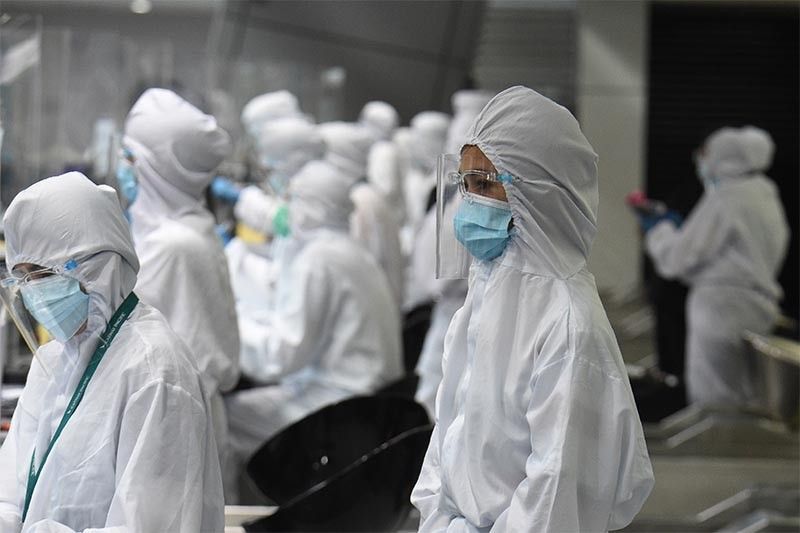Commentary: Addressing corruption vulnerabilities in COVID-19 pandemic

The eruption of the COVID-19 pandemic brought to the fore the severe corruption vulnerabilities in the health sector. Globally, over US$ 7.5 trillion are allocated annually for public health. However, even before the pandemic, it is estimated that the leakage from corruption amounted to 10-25% of procurement contracts.
With more public funds being made available to fight the pandemic, better safeguards are needed to prevent corruption. In the words of Sarah Steingruber, “COVID-19 is a corruption accelerator.” She is the global health lead for the CurbingCorruption web platform and is the co-author of the report by the U4 Anti-Corruption Resource Centre on Corruption in the Time of COVID-19: A Double-Threat for Low Income Countries.
The potential for corruption becomes greater due to the lowering of institutional barriers with enhanced calls for swift actions often resulting in shortcuts to address the crisis.
In a forum on “Fighting the Pandemic of Corruption” organized by Transparency International-Philippines, in partnership with Stratbase ADR Institute and Democracy Watch Philippines last week, Steingruber discussed the corruption vulnerabilities in the health sector. The main risk areas identified were: (1) withholding accurate health data, (2) procurement contract awards, (3) substandard equipment, (4) prescription of branded over generic drugs, and (5) health budget embezzlement.
The vital link between transparency and health outcomes cannot be underestimated. The COVID-19 pandemic is acknowledged to have begun on Nov. 17, 2019 with the first recorded case of the disease in the city of Wuhan in Hubei Province, China.
In succeeding weeks, cases of people infected with SARS-like virus piled up. However, the government kept a tight lid on health data and even reprimanded the local doctors who warned of the new disease. It was only on December 31, 2019 that the World Health Organization China Country Office was informed of the existence of the fast spreading virus.
The lack of transparency and monopoly of information by the state where the virus originated prevented health authorities globally to take action and contain the transmission of COVID-19 across cities, nations and borders. The secretive process of managing information and the concentration of discretionary authority in the hands of a few foster an ecosystem that is ripe for corruption.
Dr. Robert Klitgaard, University Professor at Claremont Graduate University defined corruption using the formula C = M + D – A, where C = Corruption, M = Monopoly, D = Discretion, and A = Accountability. In this regard, corruption thrives in an organizational setting where decision-making is monopolized by a few people and subject to discretion, while accountability mechanisms are not firmly in place.
Corruption is a form of behavior that deviates from the norms and rules of public office for reasons of private gain. To curb corruption, institutional control mechanisms are important including the establishment of regulations, enforcement of prohibitions and installation of adequate checks and balances.
These should include not just strategic anti-corruption steering committees but also operational watchdogs in the government, private sector and civil society. Operational watchdog bodies should cover monitoring and evaluation of critical governance domains such as public finance and expenditure management, personnel administration, investment planning, and citizen feedback and complaint channels.
The allegations regarding the misuse of funds by the Philippine Health Insurance Corporation (PhilHealth) brings to the surface the weak exercise of institutional control mechanisms in the state-run agency. The resigned anti-fraud officer and head executive assistant of PhilHealth served as whistleblowers that led to investigations by the Senate, House of Representatives and Presidential Anti-Graft Commission to recommend executive action against erring officials in the government corporation.
Previous to that, rampant financial violations were observed in reports rendered by the Commission on Audit (COA). These indicate the importance of legislative and audit oversight agencies as accountability institutions within a system of checks and balances.
In the case of PhilHealth, it has been reported that that COA was having a hard time in auditing the agency due to the difficulty of obtaining documents from its central office. Corruption is perpetrated when there is a deviation from legal and institutional norms.
The system of checks and balances to combat corruption can be improved through the adoption of an integrated approach. This requires promoting a comprehensive strategy that includes the facilitation of basic democratic standards, participation of a strong civil society engaged in transparency and accountability work, and the consistent application of the rule of law.
Lessening information asymmetry can reduce corruption vulnerability. The poor information technology system of PhilHealth paves the way for the processing of fraudulent claims in the agency.
It is also said that key officials in the agency have strong political backers. There are also regional officials in the agency that have managed to avoid being assigned to other jurisdictions. Public personnel corruption is encouraged by a political culture driven by patronage. Likewise, the regular rotation of key officers and staff will lessen the risks of unhealthy relationships and corruption risks.
Corruption should not be simplified as mere irregularities or the act of individuals who went astray. The focus should be on corrupt systems.
Corruption prevention strategies should look for ways to reduce monopoly power, limit and clarify discretion, and promote transparency and accountability in governance. As a crime of calculation, corruption could be countered by converting it into a high-risk activity through the judicious application of institutional controls, checks and balances, social accountability, and the rule of law.
Francisco Magno is a trustee and convenor of Right Governance and Open Governments Program of think tank Stratbase ADR Institute.
- Latest
























